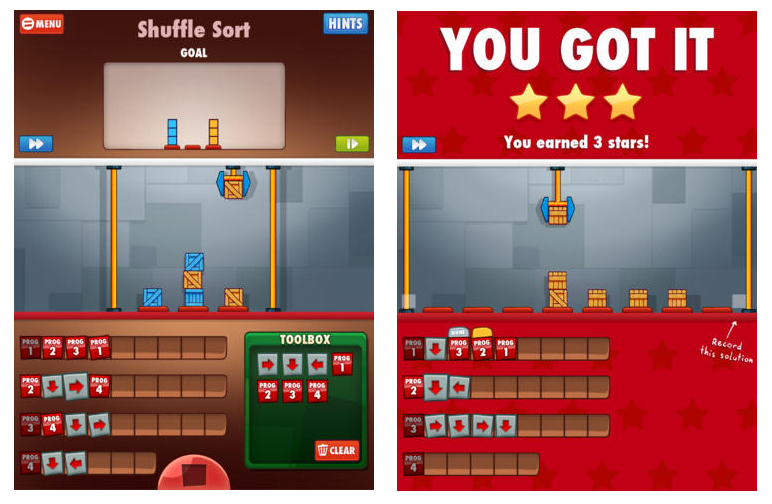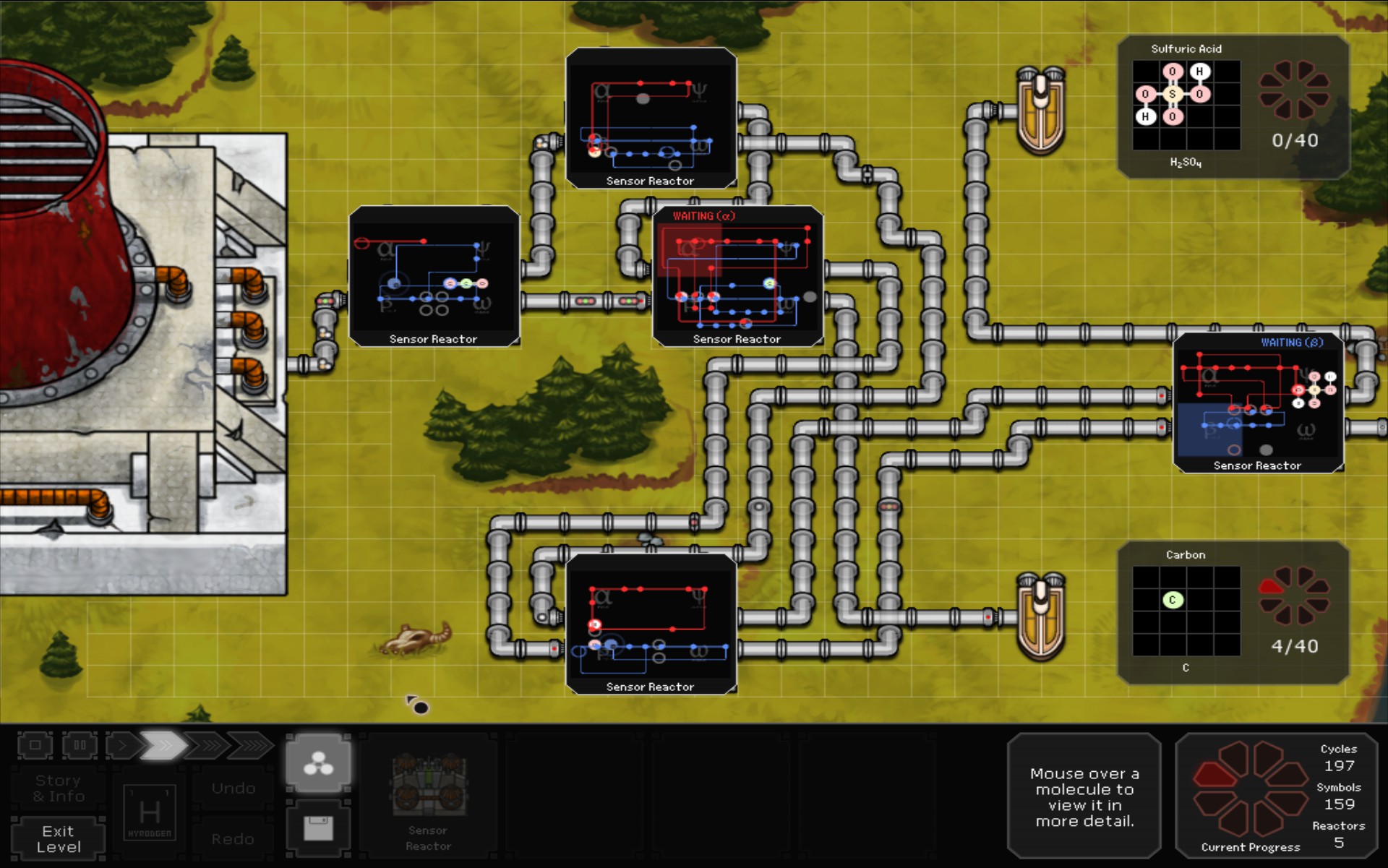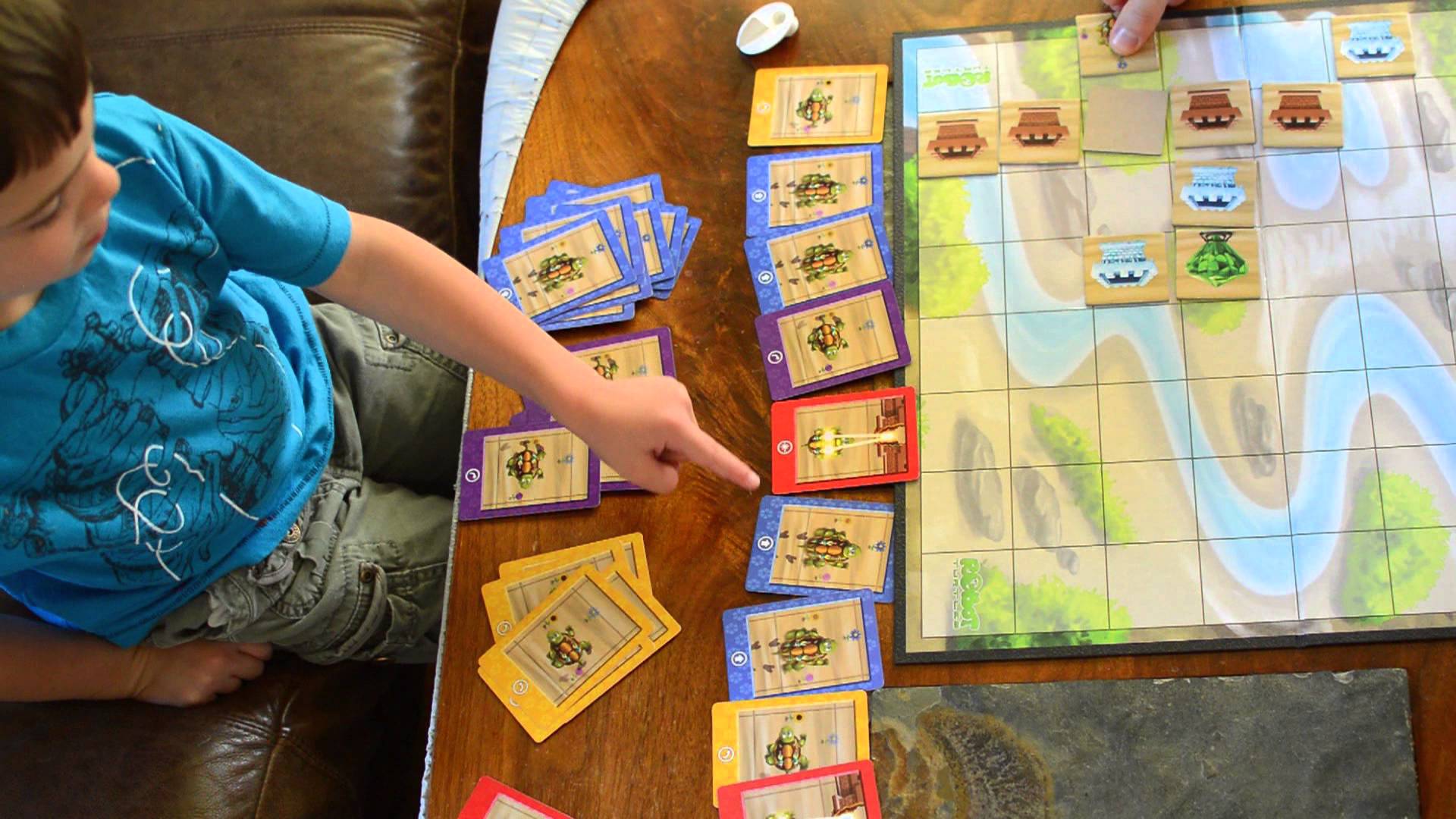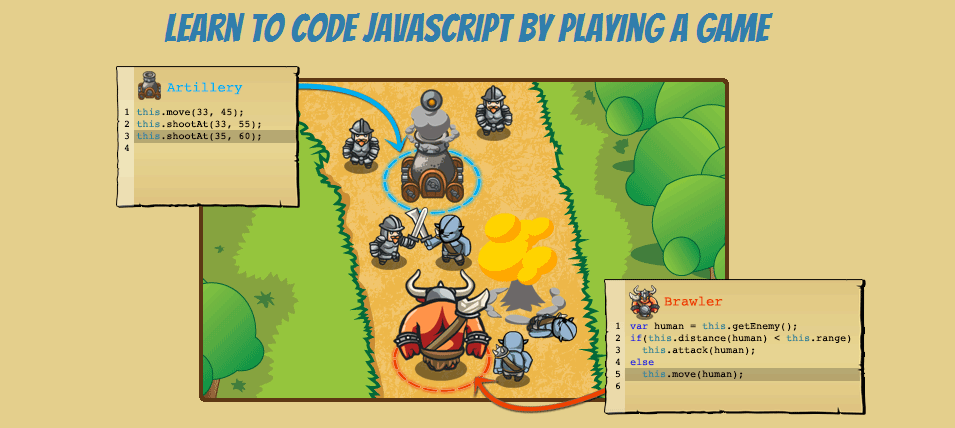Cargo-Bot
Who it’s for: 5+ to adults
Platforms: iOS
Pricing: Free
Find out more: iTunes
The expert view: “Great iPad app to teach coding. Used it with my two kiddos.” — Educational entrepreneur and Google Teacher Academy co-founder Mike Lawrence
Cargo-Bot was the first game programmed entirely on an iPad. It’s accessible for kids as young as five on its easiest levels, but it offers a real challenge as it progresses.
Players use a moving crane to shift boxes around a factory. In doing so, they use coding concepts like loops and procedures and do a ton of debugging.
“I wanted it to be a game about moving blocks around with a claw and make you forget that you are in fact programming,” developer Rui Viana told Fast Company.
SpaceChem
Who it’s for: Ages 10+ (and adults)
Platforms: PC, Mac, Linux, iOS, Android
Pricing: Free demo, $10 (Steam), $3 (iOS/Android)
Find out more: SpaceChem website, Steam, iTunes, Google Play
The expert view: “I believe SpaceChem [is] the best programming game yet made.” — Neil Brown, Computing education researcher, University of Kent, U.K.
SpaceChem’s fusion of programming and pseudo-chemistry in a science-fiction setting earned great reviews on its 2011 release.
Tough enough to challenge high-school students and beyond, SpaceChem tasks players with building machines to fight monsters, using programming concepts like in-order execution, loops, branching, and subroutines. Developer Zachtronic Industries details exactly what the game can help teach in its educators guide.
“SpaceChem is the game I wish I could give to my 12-year-old self and let him go crazy,” according to educational blog Gaming to Learn. “When you hear people talking about how important it is to learn to write code, this is what they are talking about. Games like this teach the gamer how to think.”
Robot Turtles
Who it’s for: Ages 3-8
Platforms: Board game
Pricing: $25
Find out more: Robot Turtles website – Kickstarter
The expert view: “Man, start ‘em young! This is awesome! The future is looking bright!” — John Legere, Chief executive officer, T-Mobile
This programming board game for very young kids raised over $600,000 on Kickstarter last year. It only needed $25,000 to get funded.
Such was the demand for the game, which teaches programming fundamentals by using instruction cards to command turtles around a maze, that it sold out of its initial 25,000 production run straight away. Kids use limited syntax, sequence instructions, and debug when they’ve made an error, and the game only takes seconds to learn according to creator Dan Shapiro.
“I’m a big believer that programming is like a superpower you can give kids, a way to ensure that the innovations of the future won’t leave them behind,” Sharipo told TechCrunch.
Recently acquired by games company ThinkFun, Robot Turtles is hitting the mass market later this month.
Code Combat
Who it’s for: Ages 13+ (or younger with guidance/consent)
Platforms: Web browsers
Pricing: Free
Find out more: Code Combat website
The expert view: “Very creative and engaging approach to teaching coding through play.” — Jason Battles, Associate Dean for Library Technology Planning and Policy, University of Alabama
Code Combat is the only title on the list that has players inputting actual code to play (Javascript currently, with experimental support for CoffeeScript, Python, Clojure, and Lua). Don’t let that put you off, though, as Code Combat does a great job of entertaining while teaching.
You can work through single-player levels in this fantasy-themed game, then unleash your new-found coding skills on other players. There’s a multiplayer tournament called Greed in progress right now with $40,000 worth of prizes up for grabs.
Code Combat hopes to stay free by helping companies recruit high-level players. Yep, that’s right. Playing a game can get you a job.





